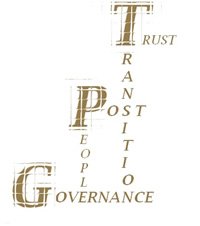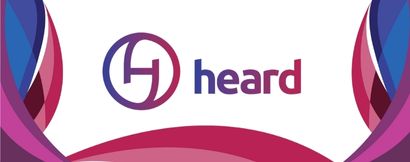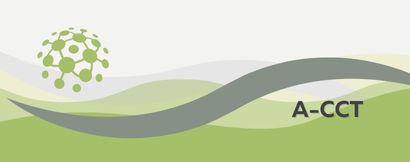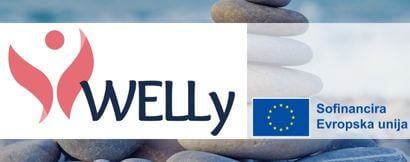|
|
Faculty of Organisation Studies Novo mesto organizes 2nd annual Governance in (post)transition conference that will take place between 25 and 27 April 2013 in hotel Šport Otočec. Topic of 2013 conference is “Public administration reform approaches in Central and Eastern Europe”After the fall of communist/socialist regimes in early nineties in Central and Eastern European Countries, they tried to apply different reform approaches. Approaches such as New Public Management, introduction of “Good Practices”, Good Governance, implementation of CAF and ISO standards, development of e-government in administration were like a promising answer for a better administration. We can agree, that administration improved, but we can be much less sure if it changed its core into “new administration”. Different turbulent elements of transition period more or less revealed that often changes were more or less cosmetic and non-adequate for better support of the state. 2007 onwards economic crisis at least in some cases showed how public administration was reformed and prepared for activities in complexity of modern world. In this perspective, any case study, comparative study, empirical or only theoretical reflection is welcome. |
Conference is open to papers addressing aforementioned elements in the following fields:
– administrative reform
– local governance
– public finances and fiscal policy
– reform approaches and evaluation
– regionalization
– common European Administrative Space
– Role of ICT in administrative processes
Organizing team is providing also special panel for up to 5 students papers on aforementioned topics.
Short abstract shall be send to uros.pinteric@gmail.com no later than by 15. 4. 2013. Authors will be notified about acceptance until 17. 4. 2013. Full papers shall be submitted until 15. 5. 2013 for e-publication.
At the same time, three permanent working groups are established this year in the field of local politics and policy making, in the field of local and regional development and in the field of ICT in governance. Working groups are accepting papers according to calls specified below.
WG 1: Local politics and policy making
Chair: Daniel Klimovský, PhD.,Technical university of Košice
Chair: Katarzyna Radzik Maruszak, PhD., University of Marie Curie-Sklodowska in Lublin
WG focus: Recent Reforms Aimed at Local Governments and Local Policy Making in the CEE Region
CEE countries have gone through a few very important reforms in a relatively short period since 1989. Basically, one can see that these reforms have been associated with three fields – i.e. reforms linked to political issues, economic reforms, and reforms aimed at public administration. Some of these reforms started immediately at the turn of 1989 and 1990, and some later; however, only a few of them have been already finished. The Communist institutions were removed in the CEE countries practically immediately but their replacement with a new system of institutions has been more problematic than trouble-free. One of the most visible uncertainties of replacement has been related to the tempo. The new system of institutions has been, in comparison with removal of the so-called old principles, developed very slowly, and quite often in a chaotic and non-strategic manner.
The CEE region is a wonderful research area because the countries from these region have implemented different reform measures (e.g. renewal of self-government, new public management, good governance, administrative and fiscal decentralization, introduction of direct elections of mayors, territorial consolidation/amalgamation) in order to modernize or improve performance of local governments. It raises a crucial question which forms the theme for the sessions of this working group: “What reform measures aimed at either local government systems or local policy making have been implemented in the Central and Eastern European countries since 1989 and how different are these countries nowadays?” The sessions of working group are open primarily to academics and we especially encourage early career researchers, including those who are currently undertaking an academic degree or post-doctoral studies, to attend the sessions and use this opportunity to present their research outcomes.
WG2: Local and regional development
Chair: Uroš Pinterič, PhD., Faculty of Organisation Studies Novo mesto
Chair: Saša Drezgić, PhD., University of Rijeka
Working group focus: Reform approaches in local and regional development in CEE countries
WG on local and regional development welcomes papers on how in theory and practice different CEE countries set up their sub-national administrations in order to assure faster development at local and regional level. Different reforms were mainly concentrated on national level, while sub-national levels were often seen insignificant elements of democratic mask for national management. However, different cases shows that there are countries where stress on importance of sub-national level was much greater and on the other hand also in countries where sub-national level was underestimated there were exceptions, mainly due to the local leaders who decided to take rule in their own hands and who tried to established open space for development within or even on the border of legality with intention to improve situation in their communities as well as their possibility to get re-elected. In this perspective, our working group is this year especially interested in how and why classical reform approaches failed or succeed and what was the importance of individual leaders in order achieve better development within certain area.
WG 3: ICT in governance
Chair: Zorica Bogdanović, PhD. University of Belgrade
Chair: Zuzana Somogyiová, Ing., Technical university of Košice
Information and communication technologies present many ways to reform how governments work. The way how governments share information, engage citizens and deliver services to external and internal clients evolves rapidly. ICT tools are emerging as important instruments towards the goal of “good governance”. However, e-Governance encompasses more than just technology – it challenges the way in which public sector service providers and citizens interact. It is tightly related to legal, economical and organizational fields and as such holds a strong interdisciplinary status. Therefore, possible topics for this workgroup include, but are not limited to:
• Architecture and infrastructure of e-government: technical, semantic and organizational aspects, interoperability in e-government, key performance indicators, interoperability frameworks and strategies, identity management, knowledge management, decision support systems and business intelligence systems in e-government, document management systems, etc.
• Applications of e-Government: ideas and best practices for improving the efficiency and effectiveness of public sector; G2C, G2B and G2G applications; e-government portals, applications in specific areas: e-justice, e-health, e-voting, e-procurement, GIS, etc.
• e-Government 2.0: web 2.0 technologies in e-Government, e-Government mashups, social media and social networks, citizen relationship management, new platforms for marketing and PR, e-participation, etc.
• Emerging technologies in e-government: mobile government, cloud computing for e-government, smart government, smart cities, etc.
We are looking forward to meet you in Otočec.
On behalf of organizing team
Uroš Pinterič, PhD.
Faculty of Organisation Studies Novo mesto
Due to the fact that organization of this event is connected with different expenses we are introducing, hopefully reasonable, fees that can be paid prior the conference on the bank account specified below or at the conference venue. Fees will cover expenses of publishing the papers, other conference materials and coffee breaks. Organizer will cover the expenses of accommodation for one author per paper.
Conference fees:
Payment until 15. 4. 2013 / Payment after 15. 4. 2013
Paper-giver - author 30 € / 50 €
Paper-giver – co-author (if present at the conference) 30 € / 50 €
Participant – student 20 € / 40 €
Participant – individual 40 € / 80 €
Participant – paid by institution 100 € / 200 €
Bank address and account:
Nova ljubljanska banka
Trg republike 2
1000 Ljubljana Slovenia
Faculty of Organisation Studies Novo mesto
Novi trg 5
8000 Novo mesto
Slovenia
IBAN: SI56 0297 0025 7640 895
SWIFT: LJBASI2X
Reference: GPT 2013















